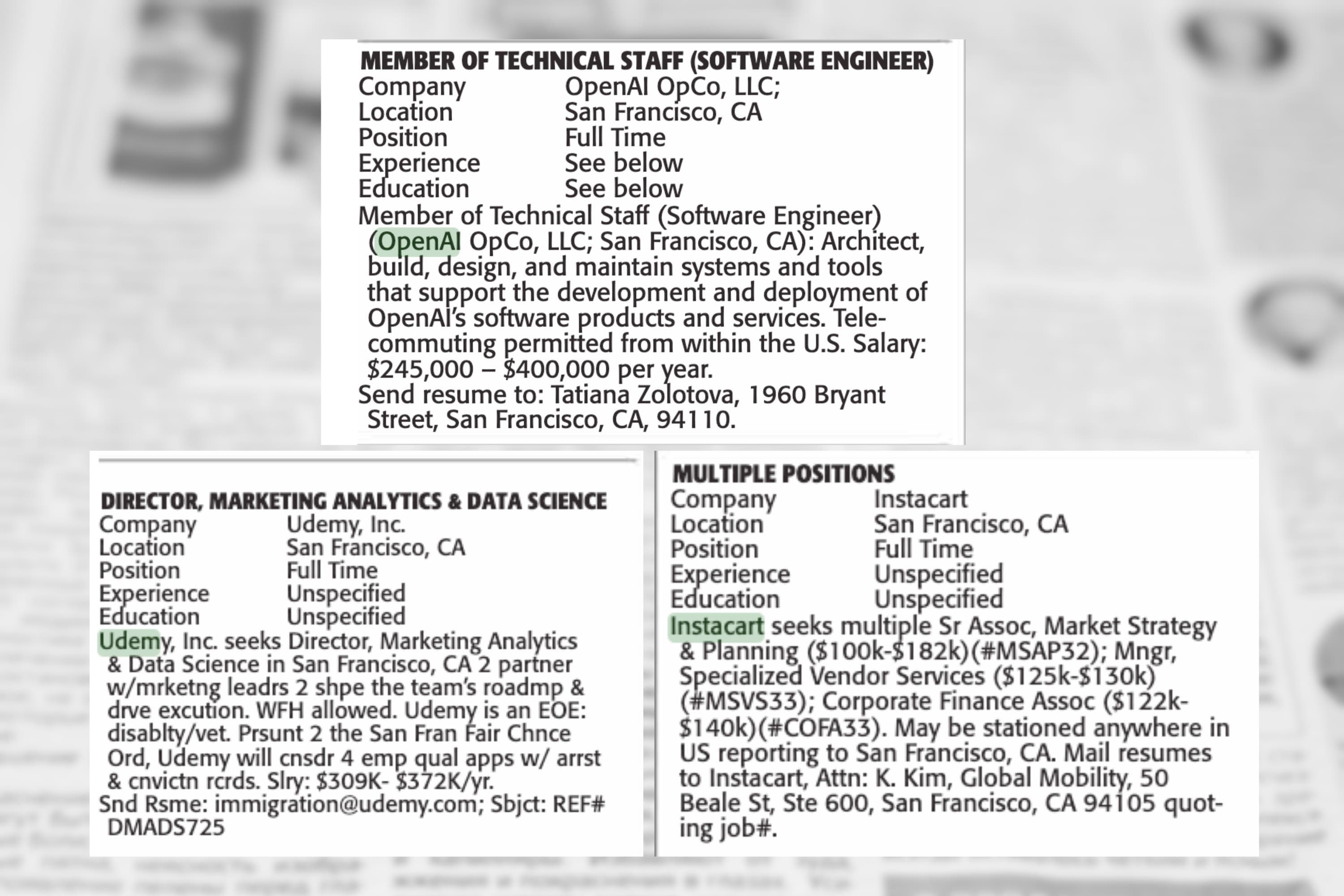Federal Regulations Under Scrutiny Amid Allegations of H-1B Visa Advertising Manipulation

Allegations have surfaced regarding U.S. companies potentially manipulating H-1B visa advertising requirements, specifically through the use of obscure local newspaper job postings, to facilitate the hiring of foreign workers for green card sponsorship. A recent social media post by Matt Forney highlighted this practice, claiming that job listings are intentionally placed in print newspapers that receive minimal readership, thereby limiting American applicants. This strategy, according to the post, allows companies to then assert a lack of qualified domestic candidates, paving the way for H-1B visa holders to secure permanent residency.
"None of these jobs can be applied for online. If you want to become a Senior Data Analyst for Black and Decker, you have to pick up a copy of the Sunday paper. This is intentional," stated Matt Forney in his viral tweet, adding, "We need new federal regulations to stop this. It's a clear fraud being perpetuated on the American people."
The Department of Labor (DOL) mandates that employers seeking to sponsor H-1B workers for green cards through the PERM labor certification process must advertise positions openly, including in at least two major Sunday newspapers. Additionally, job openings must be listed on a state workforce agency website, internally within the company, and through two other advertising channels. While these regulations aim to ensure a good-faith effort to recruit U.S. workers, critics argue that the reliance on print media, particularly for tech roles, effectively bypasses American job seekers.
Newsweek reports that companies like OpenAI and Instacart have utilized similar advertising methods, directing applicants to "global mobility" or "immigration" departments, often via paper mail or email-only applications, rather than standard online portals. This practice raises concerns among groups like Jobs.Now, who allege that employers are "bending the rules" to favor H-1B workers already employed by the company. The issue highlights an ongoing tension between the need for immigrant workers and concerns that companies may be importing cheaper labor instead of prioritizing American-born or permanent resident workers.
Despite past settlements by the Department of Justice with companies like Apple and Facebook over advertising practices, calls for stricter federal oversight persist. The U.S. Citizenship and Immigration Services (USCIS) and the Department of Labor (USDOL) are the primary agencies responsible for H-1B visa and labor certification processes. The debate surrounding these advertising practices underscores the complexities of the U.S. immigration system and the continuous scrutiny over its impact on the domestic workforce.